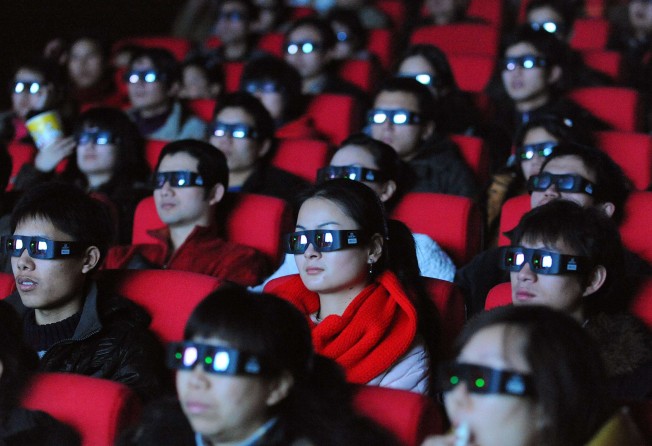From boom to burst bubble in six months — cinema industry feels the effects of inflated expectations
July box office takes a surprise plunge after crackdown on fake ticket sales and fabricated screenings

Remember in February, when Chinese box office revenue growth overtook the US for the first time?
Market watchers instantly trumpeted they expected the country’s movie industry to be competing head-on with Hollywood as early as 2017.
But just six months on, they are now being forced to think again, after a series of high-profile government-led moves appear to have sent box office receipts spiralling in the wrong direction.
According to government statistics released on Monday for July — traditionally the peak season for movie releases — cinema revenue tumbled 18.2 per cent to 4.5 billion yuan against the same period a year ago.
The result marks the first time the early summer box office had posted negative growth since 2011, and is in sharp contrast with previous growth rates of more than 30 per cent, each July for the past five years.
“After the wild excitement in the first half of this year, rationality has returned to China’s movie markets,” said Liu Yan, an analyst with Southwest Securities.
“The golden days of 2015, with nearly 50 per cent annual growth, will not come back,” he said.
“We don’t expect to see the same growth for at least the next three years.”
Liu has now reduced his annual forecast for Chinese box office revenue to 53 billion yuan, down from the previous 60 billion yuan. He has also cut the estimated growth rate to 20 per cent, from 30 per cent previously.
Last year China’s movie theatres pulled in 44 billion yuan, a 49 per cent rise on the year earlier.
Although that tally still dwarfed the US$11 billion box office in the US, the growth rate was considered a major breakthrough for the Chinese industry.
But it was February’s result which really got the industry excited.
Chinese box office for the month was a massive 6.88 billion yuan, beating the US’s monthly box office for the first time ever, and topping the world.
PricewaterhouseCoopers even forecast the country could overtake the US to become the world’s largest movie market as early as 2017, when expected box office revenue could gross US$10.3 billion.
And it suggested by 2020, the Chinese box office may account for more than a third of the global pool with US$15.1 billion, it suggested.
However, that blockbuster February growth headed south in April and May, falling 24 per cent and 1 per cent respectively.
By the end of the second quarter, half-year box office revenue totalled 24.6 billion yuan, up 22 per cent from a year earlier, but much lower than the 48 per cent growth in the same period of 2015.
The trouble started in March, when China’s movie industry regulator said Dayinmu, the distributor for Hong Kong martial arts movie Ip Man 3 starring Mike Tyson, had inflated its box office revenue by “fabricating more than 7,600 screenings of the movie which they said had generated 32 million yuan in ticket sales”.

Then in May, local media reported that the China Securities Regulatory Commission had banned a number of listed companies from funding their investments through private placements in industries not related to their core business, including online finance, gaming and virtual reality, and movie and TV production.
And in July, the Shenzhen Stock Exchange tightened its scrutiny on listed movie and TV production companies. The bourse said that listed film studios were now required to “state clearly the exact influence of high box office on operating revenue, otherwise investors may be misled”.
Qin Bo, an analyst from Everbright Securities, says those events appear to be the triggers to what has been a dramatic reverse in fortunes for the Chinese move industry.
“The government’s crackdown on inflated box office was aimed at curbing speculative activities, and popping the bubble being created in the movie market,” he said.
Other reasons offered by analysts suggest a cut in subsidies from film producers has also hit the industry hard.
Chinese movie watchers can usually buy tickets at a discount as producers or distributors offer subsidies to attract wider audience.
Liu from South West Securities adds that more Chinese viewers have now shifted their preference from imported Western action or Sci-fi movies to local creative content, such as movies based on traditional Chinese literature, and imported movie ticket sales have dropped dramatically.
“As China further opens up to the world, viewers have grown less curious towards foreign films,” he said.
“You can’t attract them without more creative and relevant content.”